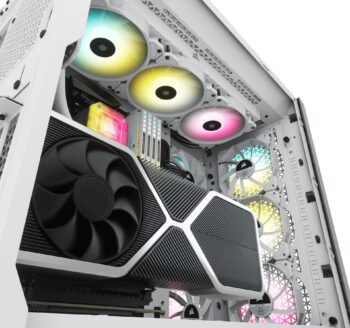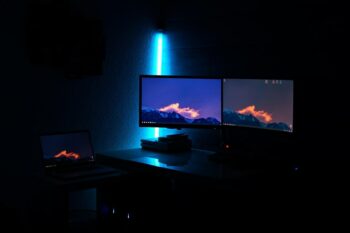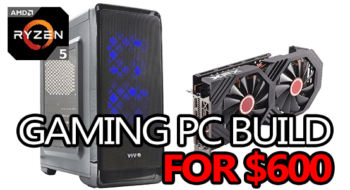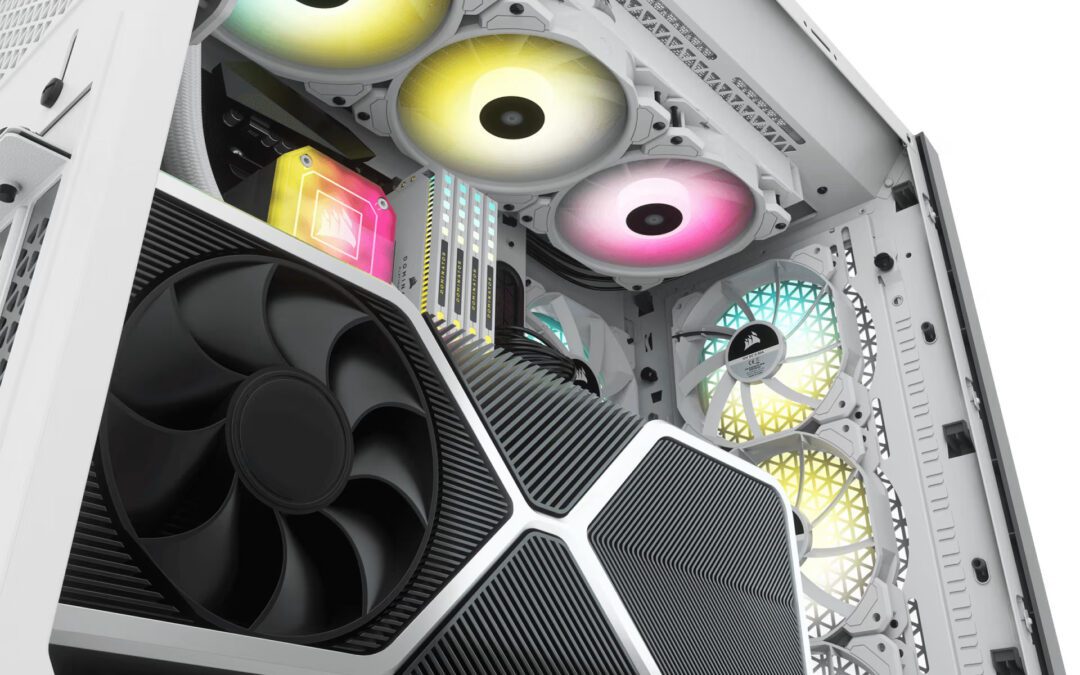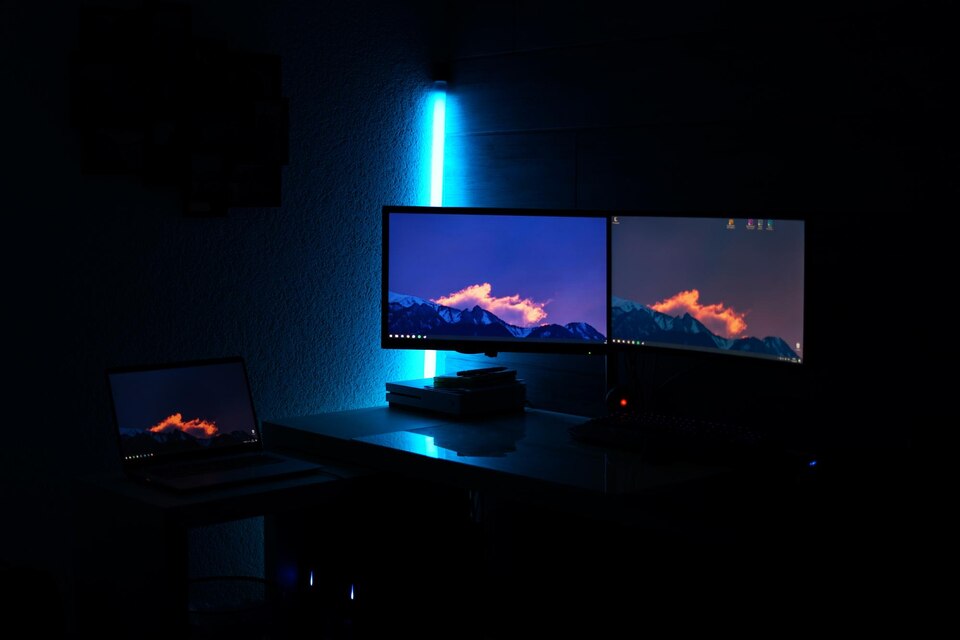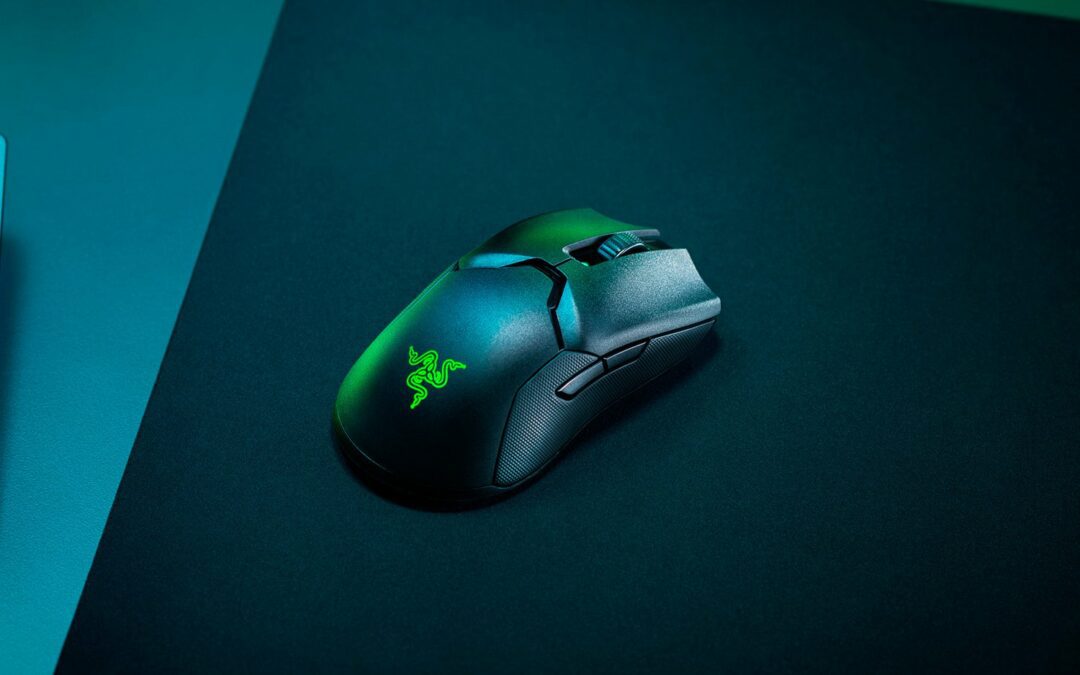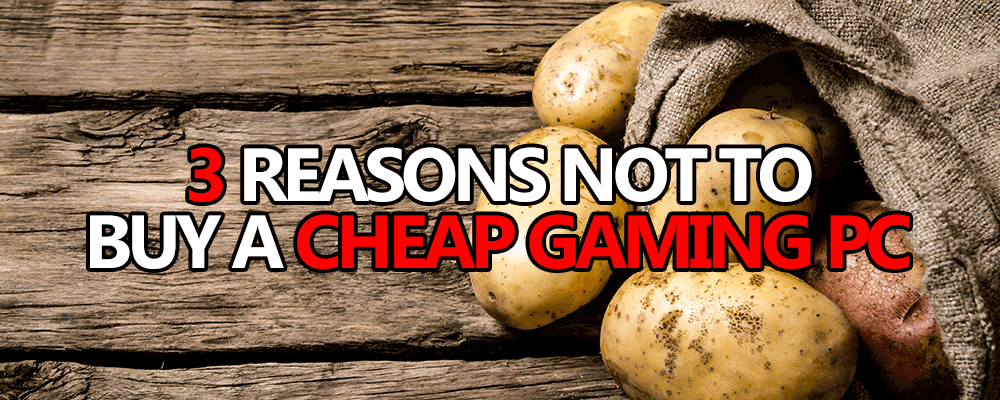
Buying a new computer for gaming is not a cheap investment, especially if you want to get a solid 60FPS+ experience. At the same time, it doesn’t have to be super expensive. Regardless, there are some pretty good reasons why you shouldn’t buy a cheap gaming PC – let’s take a look at 3 of them.
What is a cheap gaming PC? In my opinion, it’s pretty much any desktop that costs less than $500 for the tower – not including sales, etc. From now on, when I’m referring to cheap gaming desktops you’ll hopefully know what I mean.
1. Won’t perform as you expect
The most basic reason why you probably shouldn’t buy a cheap gaming PC is that it might not perform as you expect it to. A lot of people buy budget desktops with high-end expectations, only to be disappointed when they discover their $500 build simply cannot play The Witcher 3 on ultra settings in 4K at 240FPS.
That being said, if you’re buying a budget-level build with realistic expectations, then you shouldn’t end up super disappointed.
An example of realistic expectations would be understanding that builds in the budget-bracket are often more suited for medium settings in 1080p when you’re talking about the bulk of 2018 AAA games. More often than not they’ll still look AND perform better than their console counterparts, but it won’t be that true PC experience.
But, a cheap gaming PC is going to work great for pixel-art games and things of that nature. Or, if you don’t mind gaming on console-like settings while still getting a higher FPS, a cheap build will also do well. It really comes down to what you’re comfortable with.
Streaming gameplay? Not usually an option with the majority of cheap gaming desktops. Expecting a $500 desktop to stream gameplay at the same quality that someone like Ninja does is just crazy!
2. Limited upgrade options
Depending on how cheap of a gaming PC you’re looking at, it might not have very good upgrade options. This might be something you couldn’t care less about, or this might be a deal breaker. It comes down to the individual build and what hardware its currently running.
If the build is older, the motherboard might not support modern CPUs and you would end up having to replace it. Another problem with older builds is it could also be running RAM that’s no longer supported by modern CPUs. In that situation, instead of just upgrading your CPU you’re stuck upgrading your RAM and motherboard as well – adding hundreds of dollars to the cost of your upgrade, if not more.
Other issues you could run into are limited slots for RAM, lacking i/o options, lacking storage options, and a handful of other problems and/or missing features. Most of these are more annoying than anything else, but they’ll potentially end up costing you more money in the long run.
Sounds like a lot of headaches, right? Exactly.
3. No value
I don’t mean that a cheap gaming PC literally has a value of $0; instead, they hold little value when compared to what you could get by saving up just a bit more cash.
As an example, say you only want to spend $500 on your next build, but you also want to play all of the best games in 1080p on ultra settings at 60FPS+. That simply would not be possible. BUT, if that hypothetical you were to save up another couple hundred, your goal would be well within reach.
I mean, you saved $500, what’s a little more waiting if it’ll mean way more fun for a longer period of time?
The performance difference between your typical cheap gaming PC and a typical mid-range gaming PC is often quite massive. We’re talking dozens of FPS in a lot of cases, easily the difference between a smooth 60fps+… or not…
Pretty much anyone who saves up a little longer to get more power is going to be really happy with their decision. Even if that means you have to buy your build in segments to feel like there’s at least some progression, it’s better than spending less on a cheap gaming PC.
However, it’s not all bad. Like I said before, in some cases a cheap gaming PC can work great – if you only play games that aren’t too demanding. Games like CS:GO, DOTA2, LoL, or Overwatch would run perfectly on a cheap PC for instance. It’s just when you get into playing mostly AAA games when you’re going to run into most performance issues if you absolutely must play on ultra settings.
Conclusion
When it comes down to it, a cheap gaming PC does have its place. But, that’s only if you’re buying it with realistic expectations.
Let’s be honest, if you’re expecting to spend $500 on a build and have it play something like GTA: V on ultra settings, it’s just not going to happen. For that kind of experience, you’re going to have to save more money, it’s as simple as that.
One day, maybe, hardware capable of tackling AAA games on their highest settings will be available for console prices. However, that day sadly is not today. If that’s the kind of experience you’re aiming for, you’re just going to have to extend your budget a bit.
